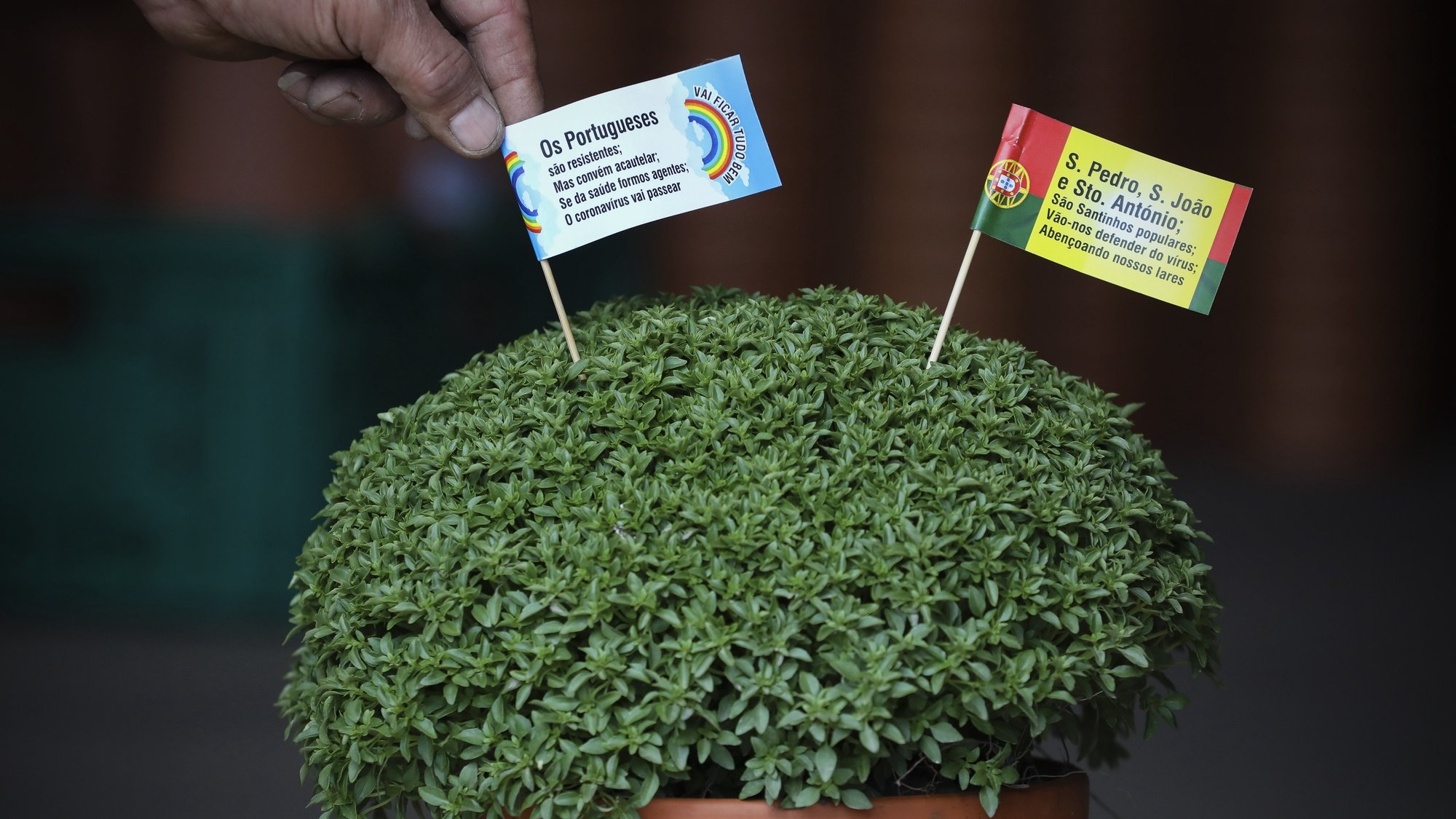Basil production stands out again in June with the return of Santos Populares, but among the players in the business, the reports on demand, price inflation and the evolution of sales are different.
“This year had everything to be a much better year, but unfortunately, with inflation, it was a debacle in rising prices“, says Vera Oliveira, owner of Viveiros Vera Oliveira (Sintra municipality, Lisbon district), in statements to the Lusa agency.
The owner decided to produce only 1,000 basil this year, when he sold more last year. This production is not his ‘strong’ and he only develops it as a ‘complement’, because he knows he has a way out. However, he admits “It has not been profitable enough for the business”.
The impact of inflation on the company, which mainly produces vegetables, was felt in the price of the “land they put in the pots” and in the “prices of fertilizers, which tripled,” according to Vera Oliveira.
Joaquim Araújo, a farmer from Maia, a district of Porto, says that in mid-May he had “many orders for Lisbon”, despite the fact that he is still a long way from the festivities, which in the capital are the highlight of Santo António night. , from June 12 to 13.
The professional produces around 30,000 basil each year and this year is no exception: he planted around 30,000 to 40,000. In the two years most affected by the pandemic he did not notice a respite and “both last year and 2020” he continued “selling well,” so he’s not complaining.
The inflation that is felt in Manjericos Araújo, which sells mainly to large surfaces, is reflected in the price of clay pots, which “have risen a little, but not too much”, due to the increase in the price of natural gas, very used in the ceramic industry. .
Back in the municipality of Sintra, the balance of recent years is different in Viveiros Vítor Lourenço, which produce a large amount of basil annually, with 85 to 90 thousand now forecast: Marisa Lourenço, agronomist responsible for production, says that this time it produced “up to more than 10% of the previous year, but much less than in 2019, possibly less than 30%”.
“It is difficult to specify the amount sought, due to the last two years, which have reduced production”, and for this reason it was decided “not to risk it”, says Marisa Lourenço.
Every year, he says, the price of basil tends to “go up a little” and this year it will surely go up due to inflation, which “increased all raw materials by 20%” delivered by its suppliers.
The agronomist also points out a difficulty regarding the prices of vases, which have already suffered an increase in prices even with the current year: “It is not normal, they tend to increase from year to year.”
Until mid-May it was “difficult to specify” the possible increase in demandbecause the nursery “does not yet have many reservations made previously by large clients, such as hypermarkets”.
The same explanation is given by Manuela Jacinto, an employee of Viveiros Rosa Bacará, in Lisbon, who says that it is very common “to receive orders at the last moment, when customers remember”.
The small flower sales business faced great difficulties in 2020 and 2021, due to the Covid-19 pandemic, years in which “almost nothing was sold”. Now it is expected “that this year will be much better.”
Source: Observadora
